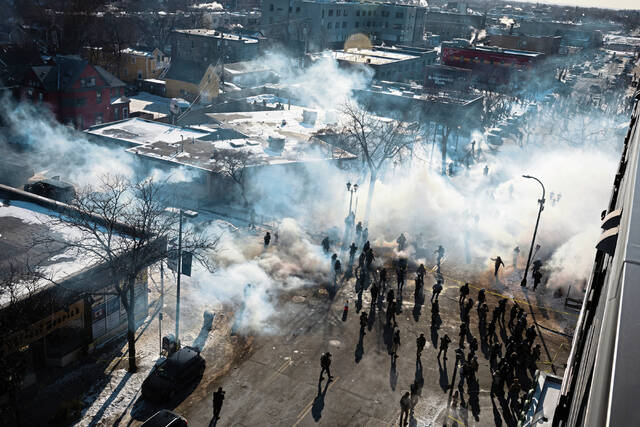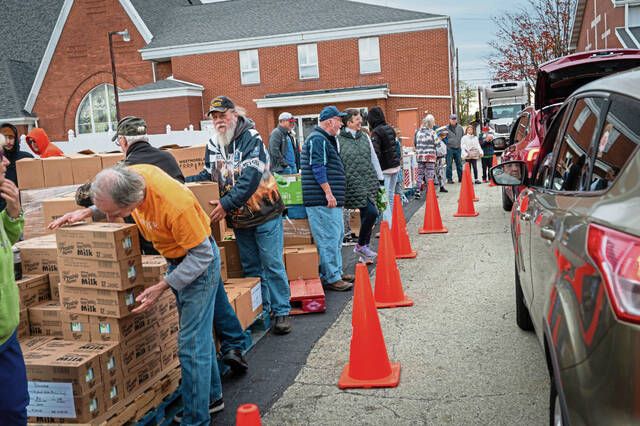The CORPS Act, a bipartisan proposal currently in the Senate, expands national service by attracting volunteers to help needy citizens during the pandemic. Within a capitalist framework, service isn’t emphasized, except within religious communities. This attitude must change, and it bears directly on race relations.
Since the George Floyd killing, there has been a stream of protests against police for long-standing brutality against Black Americans. There has also been antagonism toward the movement. In discussion groups, privileged whites ponder their contribution to structural racism and consider correctives. And yet they demur when they contemplate concessions: Are they willing to alter local schools by including kids from nearby towns? Are they willing to pay higher taxes as reparation? They aren’t ready to relinquish their advantages. Teamwork is the only way to close the gap between the haves and have-nots. That is why we ought to transform the CORPS Act into one or two years of required national service.
Even if the laws are changed, authentic interpersonal engagement is the foundation for integration. One kind of close bond between Blacks and whites has its roots in the ugly era of slavery. Many of my white patients have described the caretaking role Black nannies played in their childhoods. The sad reality is that a shortage of Black teachers leaves too many children without a mentoring experience from a Black adult. Such a relational intervention would provide Black children with role models, and white children with an indelible experience shaping their impression of another race.
Shared experiences between Black and white peers are also seminal. Because of redlining and the way school districts are drawn, most American children don’t learn intimately with children from other races. Elite whites and Blacks sometimes seek out private schools to join more diverse communities. Black children bused into white public schools often miss attending classes with white peers, who with their inherent benefits tend to dominate “gifted” classes.
Team athletes internalize the lesson that the outcome of a play depends on each person’s performing his/her part. Repetitive interdependent play builds trust, and a team wins or loses together, independent of skin color. Teams may also boycott from playing for political reasons, as modeled by NBA teams recently. Research of interdependent athletics has demonstrated the positive effect of cross-racial team inclusiveness on white attitudes, and on cross-racial relating off the sports field.
Military squadrons of mixed races coalesce when they engage in physical synchronous training. They stride even closer when confronting the enemy and risking their lives. There is evidence that the experience is ingrained, and that white veterans remain more open to Blacks years after serving together.
Because we shouldn’t count on Black nannies to educate white children about race, because wars are better avoided and because we haven’t integrated our classrooms effectively, we urgently need to facilitate cross-racial interdependence.
Imagine late-adolescents recruited to build a community center. They represent the entire swath of the Pittsburgh community and they feel tied to it. Research shows that people are more inclined to be generous and service-oriented toward others within their tribes than people from other cultures. The trick is to create that feeling of hivish membership akin to the fanaticism people feel for the Steelers, a feeling that transcends race and class. There are methods for promoting this groupish feeling, such as immersion in nature, simultaneous movements, shared music and reinforcement of common values.
Further imagine that these young people are organized into diverse residential units, each living self-sufficiently. Several units are combined at the worksite. The needs and wishes of the local citizens are measured as the center is conceptualized and built. Some kids would emerge as leaders, some as followers, and some as dissidents. The outliers would have to be reined in by the group and its norms. Interpersonal conflicts would surface. Supported by trained group therapists, the participants would have to resolve them. By the program’s end, self-esteem would be strengthened, and reciprocal trust could be genuinely established.
Parents of the privileged majority would object to the project. “Why should my kids put their Ivy League plans on hold?” Maddening libertarians would protest. “How dare you tell us what to do? It’s like telling us to wear a mask.” Elected officials would argue. “Coercing citizens into an activity is un-American.” Just noting: The military became voluntary in 1973, and the percentage of Congressmen who have served in the military has declined since 1975.
Our country is in crisis, no matter who is president. Unresolved racial tension, widespread illness without centralized health care, global warming, wealth and educational disparities, and obscuring of truth — accompanied by political division — head the list. Something bold is required.
We must invest in the collective instead of self-interest, or else we will have no society worth preserving. And we must invest in relating such that people who look different learn about each other’s souls, because that is how we discover that our basic needs are the same.
Dr. Andrew Smolar, a psychiatrist and psychoanalyst, is clinical associate professor of psychiatry at Temple University School of Medicine and supervising and training analyst at the Psychoanalytic Center of Philadelphia.








